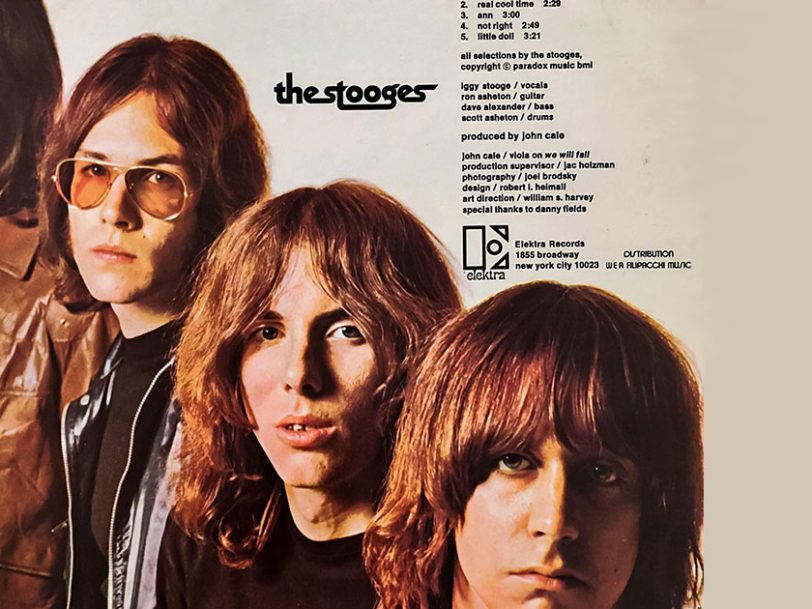It’s often credited as the record that drew up the blueprint for punk, yet The Stooges’ self-titled debut album ended up sounding the way it did almost by accident. Indeed, it’s astonishing that the record was even made at all, for its creators were famously laissez-faire about the way they came up with songs during their early days.
Listen to The Stooges’ debut album here.
“They were more like industrial theatre than a ‘rock’ band”
“The Stooges were barely a band when they made their first album,” Rhino A&R man and lifelong fan Jason Jones told Vinyl Me, Please in 2020. “They were more like industrial theatre than a ‘rock’ band. Their material was made up of feedback-laced, repetitive riffs that mutated into extended, hallucinatory improvisations. Initially, they were more in the vein of [avant-garde composer and music theorist] Harry Partch.”
Both The Stooges’ debut album and its ferocious follow-up, Fun House, now sit proudly in the lineage of what Bobby Hackney, from The Stooges’ Michigan compatriots Death, refers to as “hard-driving Detroit rock’n’roll”. The term “punk” wasn’t in circulation when The Stooges’ debut was first released, on 5 August 1969, but making rock music with an edge was certainly on frontman James Osterberg’s agenda when he formed the band in the late 60s.
“They were too unique in their vision to be anything but themselves”
Having cut his musical teeth as a teenager in local Ann Arbor beat groups such as The Iguanas and The Prime Movers, Osterberg (whose stage name, Iggy Pop, was set in stone after his stint with the former) was inspired to create a new type of music following a memorable meeting to Chicago in 1967, during which he ended up as a guest in the home of former Howlin’ Wolf and Bo Diddley drummer Sam Lay.




